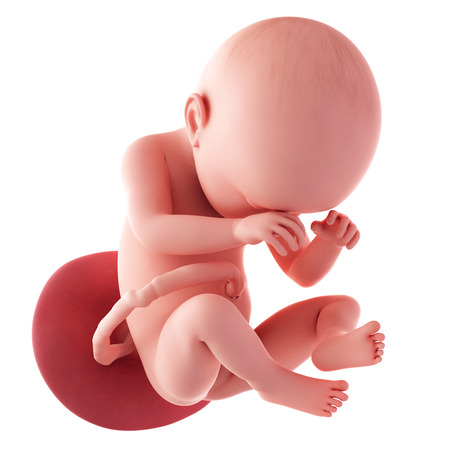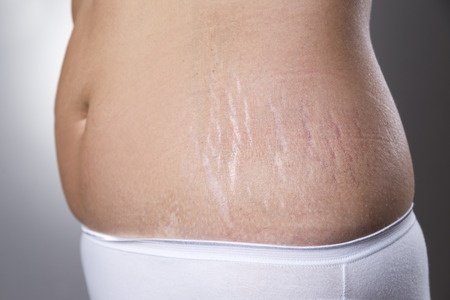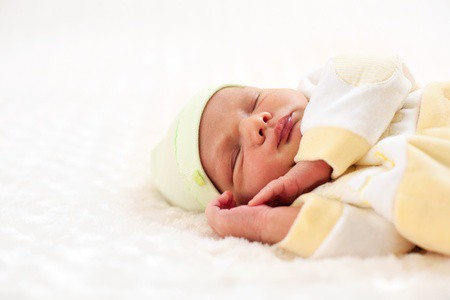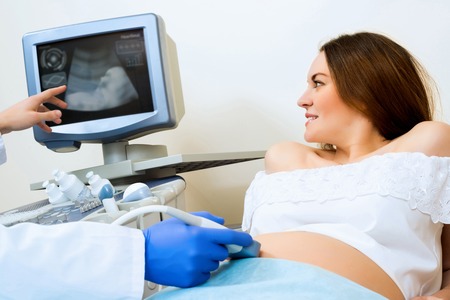38 Weeks Pregnant
The last few weeks are here! You are 38 weeks pregnant and are nearing the end of this wonderful journey and your baby is only a few weeks or days close to meeting you. Babies born at 37 or 38 weeks are still considered early term. Full term babies are the ones born after 38 weeks. Both the categories have excellent survival rates but it has been seen that full term babies do better than early term ones. This week your baby is as big as a leek weighing almost 3 kg and measuring 48 cm in height and your pregnant belly looks as big as it can. At this stage, the weight gain will slow down as the baby has attained its birth weight.
How Your Baby is Growing This Week?

Your baby’s external appearance is more or less like it will be at the time of birth. The skin color and color of the iris are determined by now. The eyes may look dark in the first few weeks of life but gradually they change their color. The color change is mainly due to an increase in the pigment so gray eyes may begin to look dark green or brown as the child grows.
The baby’s digestive system is already functioning and there is production of meconium – a waste product that is formed in the intestines as the baby ingests the amniotic fluid that contains the shed off vernix, lanugo hair etc. This will be passed as the first stool after birth. It is greenish, sticky in nature. After it is passed the stool will gradually change color to yellowish brown. If the baby is exclusively breast fed then the stool is likely to be frothy, semisolid and yellowish with mustard like seeds in it. Formula fed babies tend to have greenish or brown stools.
At 38 weeks pregnant, your baby’s internal organs are all functioning in sync with each other and are now controlled by the brain and nervous system.
The lungs are now ready and the cells are producing large amounts of surfactant which will prevent the cells from collapsing when air enters the lungs. The first cry of the baby is of much importance as the baby takes the first gasp of breath with it and kicks start the respiratory system. By this time, your pregnancy journey has changed from the early signs of pregnancy to your early signs of labor and soon begin your journey of motherhood.
Changes in Your Body at 38 Weeks Pregnant

Finally the pregnancy calculator in your phone shows it is your last two weeks, unless your little one decides to stay a little longer into the tenth month. It’s not uncommon and post term babies are heard off but with advancing medical science, the doctors prefer to deliver the baby by 40 weeks as the placenta begins to gradually degenerate after that. Early pregnancy symptoms like nausea and vomiting are long forgotten and now you are concerned with only one thing that is labor and child birth.
Your breasts at 38 weeks pregnant have now become heavier and you may notice a yellowish secretion from the nipples, that is the colostrum or fore-milk. It is the first milk that your baby will receive after birth and is highly rich in antibodies and provides the baby with the much needed protection and ability to fight diseases.
By the time you are 8 months pregnant, the abdomen has stretch marks all over. These marks gradually lessen after you deliver and get converted into silverfish lines and merge with the skin. In spite of all the tall claims of using anti stretch mark creams, they do not totally disappear. These are the proud signs that your body holds forever and they mark the beginning of a new life from here! The good news is that weight gain tends to slow down in the last month of pregnancy.
Week 38 Pregnancy Signs and Symptoms
Pregnancy week by week symptoms change very gradually and you may not notice any new sign this week. You need to be on the lookout for any early signs of labor which may indicate the need to rush to the hospital.
- Braxton Hicks contractions
- Pelvic pain
- Oedema of hands and feet
- Insomnia
- Headaches
- Fatigue
- Anxiety and depression
- Frequent urination due to pressure on the bladder
- Increased vaginal discharge
- Involuntary urination
- Round ligament pain
- Constipation
- Hot flushes
- Strange Dreams
- Leg cramps
- Itching of skin over abdomen and breasts
- Varicose veins and hemorrhoids
- Stretch marks
- Breast enlargement
- Secretion of colostrum from nipple
- Increased pigmentation of skin
Oedema of hands and feet is a very common symptom in the last weeks. It is due to increased blood volume. If it is associated with other symptoms like headache, visual disturbances or sudden weight, you could be heading into preeclampsia and you need to see the doctor immediately.
Some pregnant women notice itching of palms and soles in pregnancy. This is a sign of cholestatic liver disease and calls for systematic medical treatment.
Dilatation and Effacement
These two terms are the ones you are most likely to encounter anytime now. Dilatation means opening up of the cervix in preparation for labor. The cervix is closed by a mucus plug which is shed at the onset of labor. The cervix is firm in consistency just like the tip of your nose. With the onset of labor it ripens and becomes soft like the inside of your check. With ripening it begins to dilate as the uterus begins the contractions.
Effacement means thinning out of the cervix. As each uterine contraction progresses downwards, the cervix opens up and thins out at the same time. For the baby to come out vaginally, the cervix will thin out totally and dilate up to 10 cm; that is when you will go into active labor and the doctor will ask to begin pushing. The complete dilatation can take up to 48 hours or happen overnight in some women depending on the force of the contractions.
Diagnostic Tests and Ultrasound Results in Week 38 of Pregnancy
The ultrasound done this week will show the baby moving his limbs in the confined space within the uterus. The heart rate will be checked. The doctor will check for presence of any loops of umbilical cord around the baby’s neck. The placenta will also be checked. In case the placenta is covering the opening of the cervix – a medical condition called placenta praevia, the doctor may recommend you for a C section delivery.
The most important examination this week is the per vagina check up that your doctor will perform to check the cervix opening. This will give a fair idea of when you are likely to go into labor.
Pregnancy Health Tips

- Avoid rich and spicy food as you are very prone to getting acidity and heartburn. Have simple, nutritious and smaller meal portions.
- It is a good time to install a car seat now as most babies arrive few weeks before the due date. Once you are in the hospital, this work may get difficult so do it in advance.
- Continue your prenatal exercises like kegels and yoga. However do not over exert yourself in the last weeks.
- Do not try any home remedies or tricks for initiating or advancing labor. It is a natural process and should not be tampered with. Follow your doctor’s advice at all times.
- Maintain good hygiene of your private parts as you do not want any infections at this stage.
- You are 38 weeks pregnant and it is now important to clean your nipples with warm soapy water to remove any dead cells or skin, a preparation to feed your newborn.
<<< 37 Weeks Pregnant | 39 Weeks Pregnant >>>



